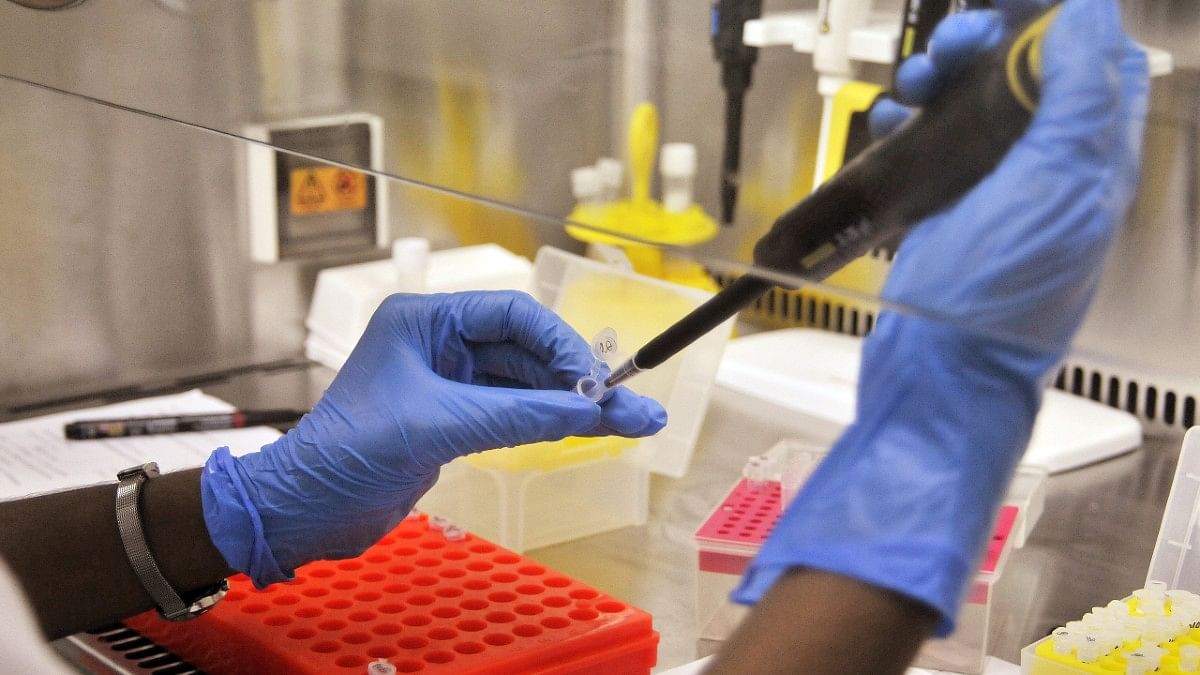New Delhi: India is on track to make history in space with the Gaganyaan mission, but it achieved another milestone Tuesday. The Department of Biotechnology announced the completion of the Genome India Project — the largest initiative to conduct sequencing of 10,000 genomes of the Indian population.
With gene samples of over 99 ethnic groups collected by 20 institutions across the country, the DBT created a reference genetic database as well as a biobank of blood samples of Indians that can be used for future research.
Genome sequencing in India specifically is necessary because of the need for “Indian solutions using Indian data for Indian problems,” said Dr Jitendra Singh, Minister of State (MoS), Independent Charge, Science and Technology, at the event where the Genome India Project presented the work it has done since January 2020, when the DBT first initiated it.
“We are the largest genetic laboratory in the world, because of our diversity. This genome reference project is a huge step, as we’ve started the process of mapping it,” said Singh in his address during the DBT’s 38th Foundation day celebrations.
The Genome India Project, led by Y. Narahari of the Indian Institute of Science (IISc), Bangalore, and K. Thangaraj of the Centre for Cellular and Molecular Biology (CCMB), Hyderabad, involved 20 institutions such as IIT Jodhpur, IIT Delhi, IISER Pune, and Mizoram University.
As part of the endeavour, researchers collected gene samples from across the country, processed them, conducted whole genome sequencing, and then stored the data at the Indian Biological Data Centre (IBDC) at Faridabad.
Also Read: How Indians’ genomes can end up abroad & why it’s raising ethical, ‘national security’ questions
Why genome sequencing?
Thangaraj, one of the joint directors of the Genome India Project, said in his presentation: “Genome sequencing gives you everything you need to know about genetic material. It is a textbook on how we look, behave, eat, talk, and more importantly, what diseases we have.”
India, he added, is host to over 4,635 anthropologically well-defined population groups, because of historical factors including endogamy, geographical isolation of certain people in hilly areas and islands, and migration.
The genome is the collection of the DNA (deoxyribonucleic acid) in an organism, which carries all hereditary material in the body. Whole sequencing of a genome gives information about how this DNA is arranged in an organism, thus revealing a unique pattern.
This pattern, said Narahari, can give information about population history, genetic predisposition to diseases like cancer as well as variations that might be resistant to certain kinds of drugs. “In a preliminary analysis of 5,750 samples, we found over 135 million genetic variations — showing the uniqueness of the Indian genome,” he added.
This database will be important to study deleterious gene mutations of cancer and lung diseases, Narahari said, adding that though other countries have conducted genome sequencing, “these won’t help India”.
“We need to have our own genome studies to help our healthcare professionals with this research.”
Underlining the various ways through which genome sequencing can aid the healthcare sector, Thangaraj said the database can help them better understand infectious diseases like COVID-19 and individuals’ frequency of contracting them, besides providing a boost to gene therapy.
Future of Genome India Project
The team behind the Genome India Project is now working to make the database available for use by researchers. Currently all the data — almost 80,000 GB of information gathered from sequencing of 10,000 genomes — is stored at IBDC.
They are also working on a research paper documenting the findings from the genome sequence analysis. As many as 16 working groups of scientists across the country have taken on other research projects after mining information from the data, Thangaraj said.
In his address at the event, Rajesh Gokhale, Secretary (DBT), said measures are being taken to ensure the ethical parameters of this data are met as well. “This hidden treasure of genomes also comes with a hidden privacy concern that the Department is striving to address ethically,” he said.
Gokhale added that this data provides a way forward towards “personalised healthcare interventions and tailored genetic makeup of Indian individuals.”
But even at this important milestone in India’s genetic history, the discussion veered towards Gaganyaan, India’s first manned space mission.
Bringing up the announcement of the four Gaganyaan astronauts by ISRO earlier in the day, Dr Singh said India was lucky to celebrate two achievements in different streams of science on the same day.
(Edited by Amrtansh Arora)
Also Read: Genomes are biology’s building blocks. A UK scientist explains their importance

